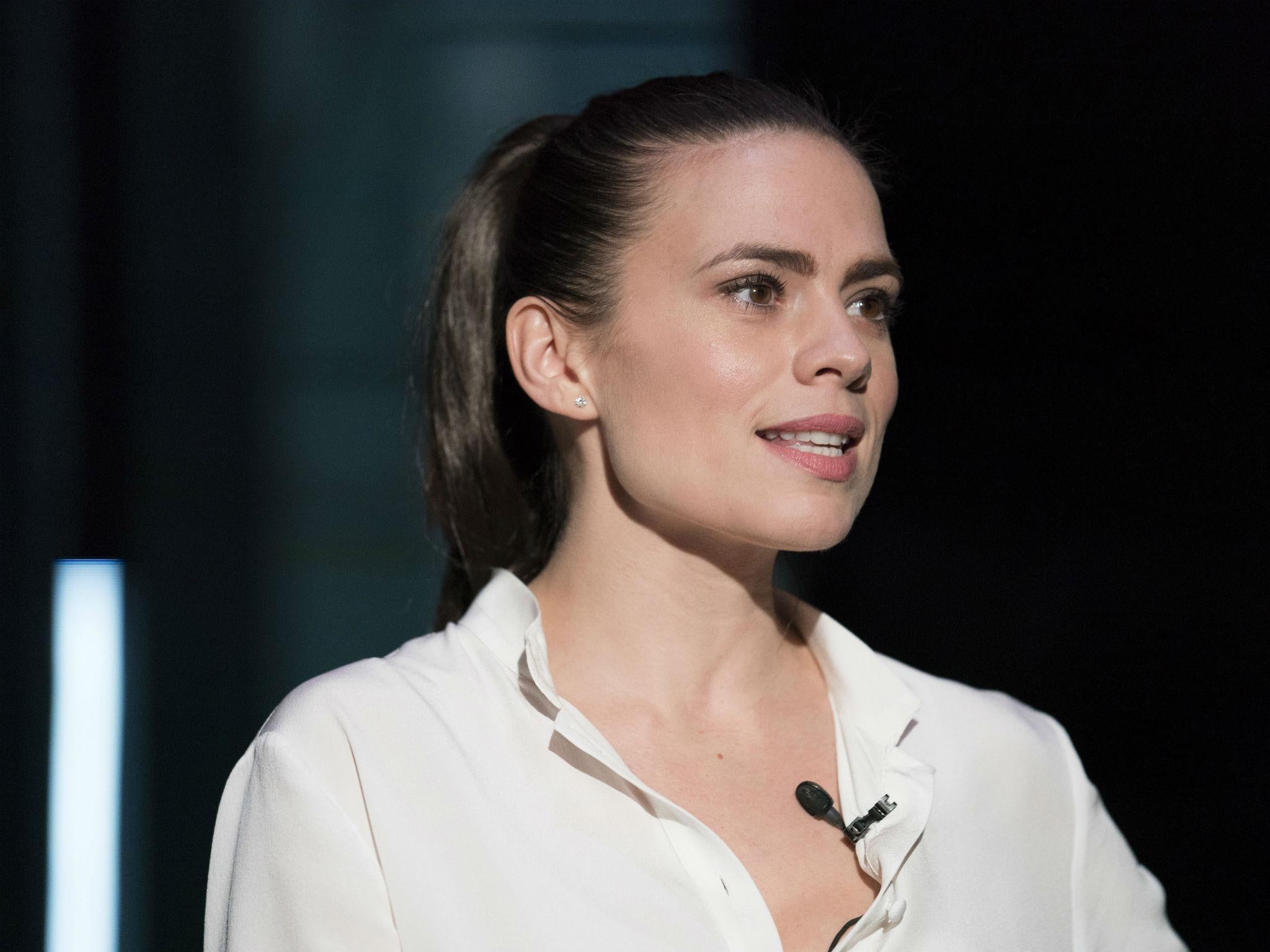Dry Powder, Hampstead Theatre, London, review: A razor-sharp comedy
Hayley Atwell takes a glorious relish in conveying the conscience-free capitalist zealotry of Jenny in Sarah Burgess’s comedy set in the cut-throat world of high-finance

Sarah Burgess’s clued-up, razor-sharp comedy is set in the cut-throat world of high-finance and scrutinises a private equity firm that’s being forced to grapple with the notion of equity in its broader, ethical sense. Is running a business still purely a matter of maximising profits? Or should a firm play a different game and take its social responsibilities into account, thus winning favour in the court of public opinion?
KMM Capital Management has just had the worst week in its history. Its president, Rick, threw a lavish engagement party (with elephant) that unfortunately coincided with the announcement that the firm’s acquisition of a supermarket chain has forced massive layoffs. The result is a PR disaster that has Rick fighting off protesters and fielding calls from worried investors. But Seth, a founding director of the firm, has a publicity-friendly rescue plan. He proposes the leveraged buyout of a luggage company in Sacramento. He’s struck up a warm relationship with the CEO and negotiated an irresistible price. Seth genuinely believes in the potential of this outfit but he also sees the tactical benefits to KMM Capital Management: “This is a slam-dunk growth play. An American family business. American designers. American-made. We’d be creating jobs right here in the US. Think about how helpful that would be to us right now.”
Anna Ledwich directs a slick, gleaming, snappily-acted production in which bewildering financial jargon – “disintermediation”, “zero based budgeting” – is pugnaciously batted about. (“Dry powder” means the remaining available capital in a private equity fund.) The irony, to my mind, is that the play’s most entertaining character also shows up its main weakness. Hayley Atwell takes a glorious relish in conveying the conscience-free capitalist zealotry of Jenny, Seth’s fellow-founding director, who is described as a “vampire” with “sociopathic tendencies”. According to her, protests against bankers are motivated by envy rather than a thirst for justice. Free enterprise may not suit weak people, but it’s beautifully fair in that “it asks nothing of you but that you show up and join the competition”.
The bottom line is the only thing that matters to this number-cruncher who’s blithely unaware of her emotional inadequacies and who, of course, opposes Seth with an alternative asset-stripping plan that would entail moving production to Bangladesh and selling the customised luggage to the emerging middle-class consumers in China. The sparring between this pair is very funny in the way it often descends to embarrassing pettiness (such as squabbling over who got the higher score in the business school entry exam). The trouble is that Burgess has created an unbalancing caricature in Jenny who at moments seems to be consciously helping out in her satirising as a weirdly wired-wrong workaholic: “Maybe I should take a vacation. I’ve always wanted to fly over Antarctica and look out the window. I’d be back in a day.” In effectively discrediting this character from the outset, the play does not exactly complicate the question of which side it is on. (Whatever happened to the principle of giving the opposition the strongest arguments?)
Aidan McArdle is very good as a testy Rick, cagily keeping his options open in this world where it is all about “timing and perception”. In the role of Seth, Tom Riley gives an attractively shaded portrayal of a man who has an idealistic vision and also a wariness about leaving his comfortable, compromised career when he’s given the chance. Joseph Balderrama nicely charts the suspicion that rises up through the affable manner of the Landmark Luggage CEO. There’s a lot that’s impressive in Dry Powder, but I ended up feeling that the debate is unduly rigged and that Burgess’s verbal astringency has been put in the service of preaching to the choir.
Until 3 March (hampsteadtheatre.com)
Subscribe to Independent Premium to bookmark this article
Want to bookmark your favourite articles and stories to read or reference later? Start your Independent Premium subscription today.

Join our commenting forum
Join thought-provoking conversations, follow other Independent readers and see their replies